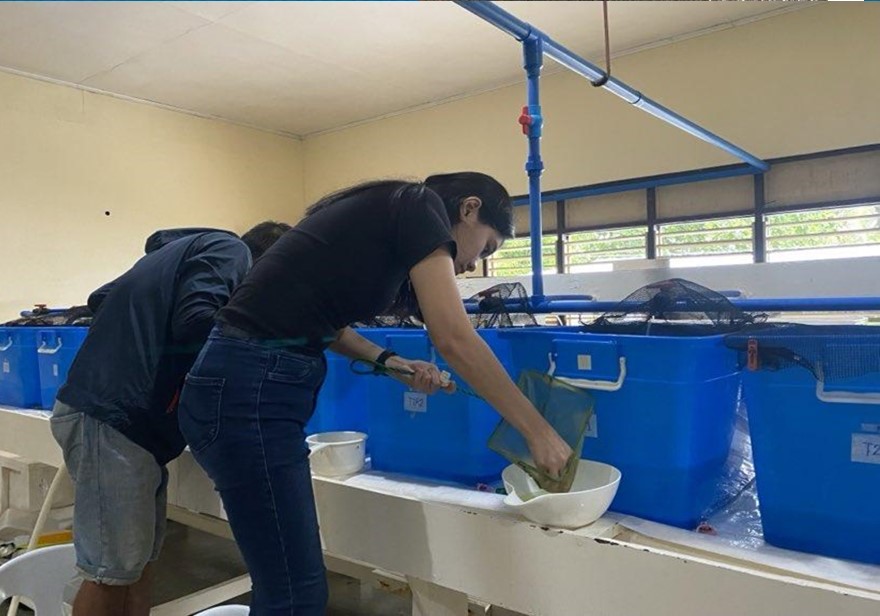A milkfish project of the University of the Philippines Visayas (UPV) targets to address the insufficient supply of milkfish fry caused by high importation rate and low survival of hatchery-produced fry.
Milkfish, locally known as ‘bangus,’ is one of the most important food commodities in the country. Recognized as the Philippine national fish, bangus has been providing communities with sources of food, livelihood, and income.
The project, “Improvement of Milkfish Larval Rearing and Nursery Culture through Gut Metagenome, Transcriptome Analysis, and Gut Microbial Community Manipulations” primarily aims to explain the microbiotic factors and their roles in the physiology of milkfish larvae and juveniles using metagenomic and transcriptome techniques.
Its objective is to employ this knowledge in designing improved rearing protocols to significantly boost milkfish hatchery productivity. The project is made possible through the funding of the Philippine Council for Agriculture, Aquatic and Natural Resources Research and Development of the Department of Science and Technology (DOST-PCAARRD).
The project highlighted that the country’s requirement for milkfish fry is close to 4 billion yearly, but hatcheries can produce only 800 million fry/year at most because of insufficient broodstock to produce the fry. As such, a substantial 75% of the required milkfish fry is currently imported from Indonesia.
UPV has been observing industry challenges in milkfish production, particularly deformities and low survival rates of hatchery-produced milkfish fry in nursery ponds, in contrast to the better survival and yield of wild-caught milkfish fry. This difference is attributed to the potential lack of maintenance in genetic quality and genetic degradation of hatchery-reared milkfish fry.
Recognizing the importance of gut microbiota in fish, the project seeks to study this further to potentially aid in selecting probiotics, prebiotics, and chemical compounds to enhance gut health and overall physical functionality of fish. Seen as significant alternatives, these can possibly reduce the reliance on antibiotics and can be a useful tool in developing rearing protocols for efficient hatchery production of milkfish larvae. This will be facilitated through a metagenomics approach.

University of the Philippines Visayas project team subjecting an isolate to preliminary testing by incorporating it in feed to test its effect on milkfish fry survival.
Metagenomics is a study of the genetic material of a species to understand the connection of microorganisms to the environment and their health.
By examining the gut metagenomic composition of milkfish fry and juveniles, along with evaluating the influence of the gut microbiome on overall larval physiology through transcriptome analysis, the project aims to uncover the mechanisms behind the physiological fitness of milkfish larvae.
The information gathered by the project will be useful to the management of hatcheries and nurseries to boost the quality and supply of milkfish fry. Such improvements are expected to benefit farmers, leading to increased yields in milkfish production.

